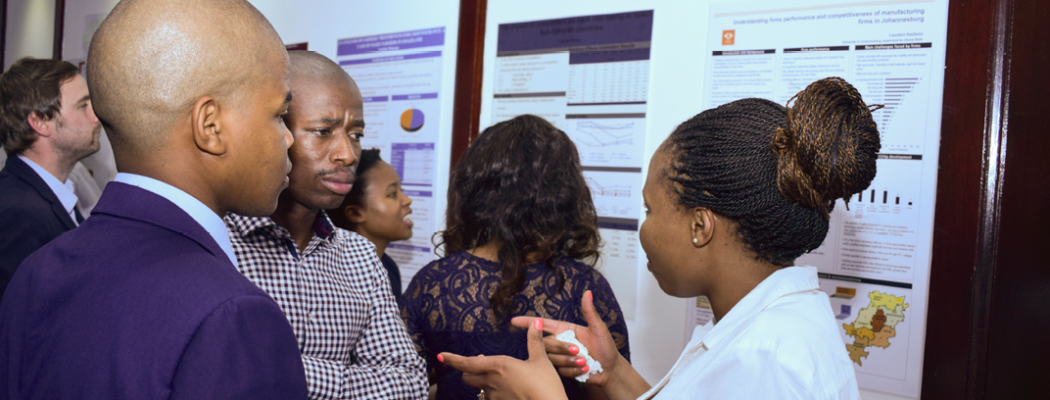Paving the path for South Africa’s energy transition
South Africa is highly coal and energy-intensive, with an economy characterized by extremely high levels of unemployment and inequality. In the long run, sustainable growth and development in South Africa will depend crucially on the transition away from a coal-intensive energy system and economy and towards a climate-friendly and renewable energy system. How this happens, and what the transition looks like for different actors and over different time scales is key to understanding the challenges of, and opportunities in, a South African energy transition.
While South Africa has started its transition away from coal already, moving to a 2 degree Celsius compatible world will require further political commitment and planning. This workshop aims to present some initial analyses done by IFPRI, UCT, and SANEDI of what the pathway may look like on the supply side. The technical workshop on August 28th will focus on coal mining and the power and transport sectors.
This will be followed on August 29 with a policy dialogue at the National Treasury from 9:00 to 12:00. The policy dialogue will concentrate on regional approaches to making a successful transition.
These workshops are organized under the SA-TIED programme by the International Food Policy Research Institute (IFPRI) in additional partnership with the University of Cape Town (UCT) and the South African National Energy Development Institute (SANEDI). They will disseminate new research findings to the policy making, business, and academic communities to inform expectations about the likely future of energy technology development globally and energy transitions in South Africa. Research presented includes, in addition to the work under the Climate change and energy transition as drivers of change work stream, research on the future of batteries carried out at UCT and SANEDI-funded studies on South Africa's energy and transport sectors.
Agenda
| 9:00-9:30 | Welcome and introductions | |
| Presentation | Setting the scene | Channing Arndt (IFPRI) |
| Presentation | Importance and limitations of integrated systems analysis | Harro von Blottnitz (UCT) |
| 9:30-11:00 | Energy build plans and macroeconomic performance - Chair: Boipuso Modise (National Treasury) | |
| Presentation | Quantifying the Macro- and Socio-Economic Benefits of a Transition to Renewable Energy in South Africa | Faaiqa Hartley (UCT) |
| Presentation | Energy planning in the context of South Africa’s NDC | Bryce McCall (UCT) |
| Presentation | Least cost energy path for South Africa: technology options | Gregory Ireland (UCT) |
| Presentation | The development of South Africa’s energy emissions path and the implications for NDCs | Andrew Marquard (UCT) |
| 11:30-13:30 | Coal transition dynamics - Chair: Aalia Cassim (National Treasury) | |
| Presentation | Overview of Modelling of the coal and power sector in SATIMGE at UCT | Bruno Merven (UCT) |
| Presentation | Managing the coal transition for workers in South Africa: a scenario analysis of age cohorts | Jules Schers (UCT/Expertise France) |
| Presentation | Coal Transition: Risks and opportunities | Jesse Burton (UCT) |
| 14:30-16:00 | Transport and energy in South Africa - Chair: Ashraf Kariem (DPME) | |
| Presentation | Energy Storage Technologies for a Sustainable and Cleaner Future | Chris Joubert (Africa energy storage solutions) |
| Presentation | The Energy Transition in Road Transport | Fadiel Ahjum (UCT) |
| Presentation | The changing transport sector and liquid fuel production in South Africa | Anthony Dane (Change Pathways) |





